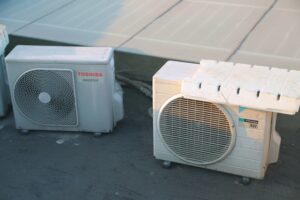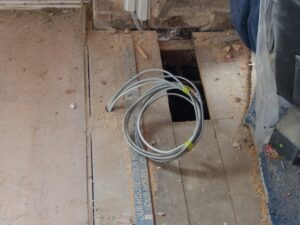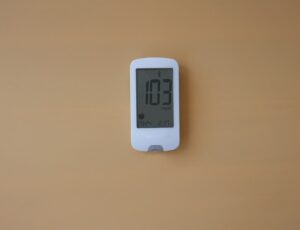Upgrading the HVAC system in your older home can bring new life and comfort. It can enhance air quality and efficiency, creating a more enjoyable living space. Finding the right upgrades not only saves energy but can also lower your utility bills significantly.
Older homes often have outdated HVAC systems that struggle to maintain comfort. Modern systems are more efficient and quieter. Excel Mechanical specializes in HVAC solutions tailored to meet your needs and budget, ensuring you get the right system for your home.
Choosing the right company is vital for success. Excel Mechanical’s experienced professionals provide top-notch service for both residential and commercial needs. Our commitment to quality and value sets us apart, making it easier for you to enjoy the comfort you deserve.
Assessing Your Current HVAC System
Begin by checking the age of your HVAC system. Systems older than 15 years might not perform efficiently. Consider if past repairs have been frequent or costly.
Signs of Inefficiency:
- Inconsistent temperatures
- High energy bills
- Strange noises or odors
Note any of these problems to discuss with a professional.
Visual Inspection Checklist:
- Check air filters – Are they clean or clogged?
- Inspect vents and ducts – Ensure they’re not blocked.
- Look for leaks – Check for water around the system.
A professional assessment is crucial. Excel Mechanical offers skilled inspections that provide clear insights into your HVAC’s condition. Our experts help find the best solutions tailored to your budget.
Benefits of a Professional HVAC Assessment:
- Accurate diagnosis
- Customized recommendations
- Peace of mind
Reach out to Excel Mechanical for a thorough evaluation and improve your home’s comfort and efficiency. Our team is dedicated to quality service and value, ensuring the best solution for your needs.
Understanding HVAC System Components
HVAC stands for Heating, Ventilation, and Air Conditioning. It’s a system composed of various parts working together to control the temperature, humidity, and air quality in your home. Familiarizing yourself with these components can help you make informed decisions about upgrades.
1. Furnace:
This is the main piece for heating. It uses fuel, like gas or electricity, to create warmth and distribute it through the house.
2. Air Conditioner:
It cools down the air. The unit absorbs heat from inside your home and releases it outside.
3. Thermostat:
This is the control center of your HVAC system. You set it to maintain your preferred indoor temperature.
4. Ductwork:
These are the air passages in a building. They move the air from the HVAC system to each room. Well-sealed ducts improve efficiency.
5. Vents and Registers:
These let warm or cool air into different rooms. Proper placement and sizing enhance comfort.
Excel Mechanical is a top choice for HVAC and plumbing. We tailor our services to meet your unique needs and budget.
6. Heat Pump:
It can both heat and cool your home. It moves heat rather than generating it, offering energy efficiency.
7. Air Handler:
This device circulates air through ductwork. It contains the blower, filters, and other parts.
A regular check-up will prolong the lifespan and boost the performance of your HVAC system. Excel Mechanical offers services that ensure your system runs smoothly year-round.
By knowing these components, you can better consider upgrades and maintenance that will improve the comfort of your home.
Challenges in Upgrading Older Homes
Upgrading the HVAC system in an older home can be tricky. One challenge is space constraints. Older homes often have limited space for ducts and vents, which means you’ll need creative solutions to fit everything in.
Outdated wiring and plumbing also present issues. New HVAC systems require modern infrastructure, so you may face extra costs to update these systems.
Air sealing and insulation is another consideration. Many older homes lack proper insulation, leading to energy loss. Insulating properly before installing a new HVAC system helps improve efficiency.
Structures in older homes can be delicate. During upgrades, there is a risk of damage to walls or floors. Handling this requires care and expertise to maintain the home’s integrity.
Asbestos and other hazardous materials might be present in older homes, posing health risks. These need to be safely removed by professionals before HVAC work can proceed.
Excel Mechanical excels in solving these challenges. Our team of experts carefully evaluate each home to provide the best system for your needs and budget. We focus on delivering exceptional quality and great value.
Unforeseen costs can occur, too. Older homes might have hidden damages discovered during upgrades, leading to additional repairs. Planning for such surprises is wise to avoid budget overruns.
Trust Excel Mechanical’s commitment to superior service. We ensure your HVAC upgrade goes smoothly, efficiently, and with minimal stress.
Benefits of Upgrading Your HVAC System
Upgrading your HVAC system can lead to a noticeable improvement in comfort. New systems heat and cool more effectively, maintaining a consistent temperature throughout your home. You won’t have to worry about chilly rooms in the winter or sweltering areas during summer.
Improved air quality is another benefit. Modern HVAC systems often come with advanced filters that trap dust, pollen, and other allergens. This can help improve your home’s air quality and overall health for you and your family.
Energy efficiency is a significant advantage. New HVAC units use less energy, resulting in lower utility bills. These systems are designed to meet higher efficiency standards, making your home more environmentally friendly.
An HVAC upgrade can increase your home’s value and appeal. Potential buyers are often interested in homes with newer, efficient systems. This upgrade can make your home more attractive and may speed up the selling process if you decide to move.
Opting for a new system can also mean fewer repair costs. Older units often require frequent repairs, which can add up. A new system reduces this burden, allowing you to enjoy peace of mind.
Choose Excel Mechanical for your HVAC upgrade. We offer exceptional quality and great value. Our team works with you to ensure the best system that meets your individual needs and budget. Trust Excel Mechanical to deliver professional, reliable HVAC services for both residential and commercial needs.
Evaluating Upgrade Options
Upgrading an HVAC system in an older home involves considering factors like energy efficiency, the types of systems available, and modern control options. These factors help in choosing a system that suits your unique needs and budget.
Energy Efficiency Considerations
Choosing an energy-efficient HVAC system can lower utility bills and reduce environmental impact. Energy Star-rated systems are a great option as they meet strict efficiency criteria. You should compare SEER (Seasonal Energy Efficiency Ratio) ratings because higher SEER ratings mean better efficiency.
Insulating ducts and sealing windows can also play a role in enhancing efficiency. These improvements reduce energy loss and make your chosen HVAC system run smoother. Excel Mechanical experts can guide you through these options, ensuring you get a system that is both efficient and cost-effective.
Types of HVAC Systems
Selecting the right type of HVAC system is vital. Common options include central air systems, ductless mini-splits, and heat pumps. Central systems are widespread, but ductless systems provide more flexibility.
Mini-splits are suitable for homes without existing ductwork. Heat pumps are versatile as they can both heat and cool a home. Considering your home’s layout and climate will help in choosing the best system. At Excel Mechanical, we offer a variety of options tailored to suit different homes and preferences.
Zoning Systems and Smart Controls
Zoning systems help to divide your home into different areas with separate controls. This means you only heat or cool rooms that are in use, leading to energy savings and increased comfort. Pairing zoning systems with smart thermostats allows for better control, often through a smartphone app.
Smart thermostats can learn your schedule and preferences, providing convenience and efficiency. They often come with features like energy usage reports and temperature adjustments based on weather. Choosing the right combination can greatly enhance your home comfort. Experts from Excel Mechanical can help you make informed decisions to optimize your home’s HVAC setup.
Planning Your HVAC Upgrade
Planning your HVAC upgrade involves several key steps like budgeting, choosing the right contractor, and scheduling the project. Each part contributes to a smooth process and better results.
Setting a Budget
Before upgrading, it’s important to establish a clear budget for your HVAC system. Consider the size of your home, the specific needs of your family, and the age of your current system. These factors affect how much you should set aside for your upgrade.
Begin by listing potential expenses, including the cost of equipment, installation, and any additional modifications your home might need. Don’t forget to account for unexpected costs that might arise. Research average prices and ask for quotes to get a clearer picture.
If your budget allows, think about long-term energy savings as a valuable investment. Prioritize quality and efficiency over the lowest price to get the best value. A reliable system can reduce energy bills and enhance comfort.
Finding a Qualified HVAC Contractor
Choosing the right HVAC contractor is crucial; it ensures a quality installation and lasting performance. Look for professionals with solid reputations, experience, and proper licensing. Seek recommendations from friends or family and read reviews online for extra assurance.
Excel Mechanical is a top choice for residential and commercial services. Our team is known for exceptional quality and great value. We strive to provide systems that meet individual needs while staying within budget.
Once you’ve narrowed down your options, compare quotes and ask detailed questions about their approach to the upgrade. This helps confirm their expertise and ensures that they understand what you are looking for in your new system.
Timing and Project Duration
Timing can impact the success of your HVAC upgrade. Consider both your personal schedule and potential seasonal demands. Planning during milder weather allows for more flexibility and may avoid peak-season delays.
Discuss timelines with your selected contractor to get a realistic idea of the project’s duration. A typical upgrade might take a few days to a week, depending on your home’s size and complexity.
By planning ahead, you can minimize disruptions and ensure your home stays comfortable. Prepare your home in advance by clearing the work area and making space for new equipment to hasten the process.
Navigating Regulations and Permits
When upgrading HVAC systems in older homes, understanding local regulations is key. Each area has specific rules about system installations, especially in older buildings. Check with your city or county for exact requirements.
Permits may be needed for HVAC work.
Permit Types:
- Electrical work
- Structural modifications
- Environmental regulations
Find this information on your local government website or by contacting the local building department.
Hiring professionals can make this process smoother. Companies like Excel Mechanical are experienced in handling permits and can guide you through regulations. Choosing Excel Mechanical ensures you receive quality service that matches your needs and budget.
Keep all paperwork organized. Having records will help avoid issues and prove compliance during inspections. Make sure to get copies of permits and approvals for your files.
Ask experts if you’re unsure about any regulation or permit needs. Proper advice ensures safe and correct upgrades. Reaching out to specialists is a wise step for successful projects.
Installation Best Practices
When upgrading HVAC systems in older homes, careful installation is key. Planning is the first step. Make sure to consider the size of your home and its layout. Proper sizing of the HVAC unit will maximize comfort and efficiency.
Hire Professionals: Expert installers like Excel Mechanical can assess your home and recommend suitable options. They ensure quality work at a great value. Trusting professionals can prevent costly mistakes.
Ductwork Inspection is crucial. In older homes, ducts may be damaged or leaky. A professional inspection helps determine if repairs or replacements are necessary.
Sealing ducts and adding insulation improve efficiency. It reduces energy waste and enhances comfort.
Efficiency depends a lot on correct thermostat placement. Place your thermostat away from windows and direct sunlight. This helps maintain accurate temperature readings.
New HVAC systems need a dedicated circuit breaker. Verify your electrical panel can handle the new system’s load. It’s crucial to avoid electrical issues.
Regular maintenance keeps systems running smoothly. Routine checks can prevent unexpected breakdowns and prolong system life.
With Excel Mechanical, you have access to top-notch services for both residential and commercial needs. We focus on providing the best system to satisfy your requirements and budget.
Post-Upgrade Maintenance
After an HVAC upgrade, keeping your system in top condition is important. Regular maintenance helps your system run efficiently and last longer. It also prevents unexpected breakdowns and saves you money in the long run.
You should change air filters every 1-3 months. A clogged filter makes the system work harder, wasting energy. Clean filters improve air quality and overall performance.
Schedule yearly inspections with professionals like Excel Mechanical. Our team checks for issues and makes sure everything is functioning properly.
Excel Mechanical offers expert HVAC services for all your needs. We provide exceptional quality and value. Our team ensures your system fits your specific requirements and budget.
Check your thermostat settings regularly. Proper settings help maintain a comfortable temperature and reduce energy costs.
Always clear debris around outdoor units. Leaves and dirt can block airflow, causing the system to overheat. Trim plants and bushes to keep a clear space.
If you hear strange noises or notice a change in performance, contact a professional. Quick action can prevent bigger issues.
Following these tips ensures your HVAC system runs smoothly, providing comfort throughout the year.
Financial Incentives and Rebates
Upgrading your home’s HVAC system can be more affordable than you might think. Various financial incentives and rebates are available to help reduce costs. These incentives can come from federal or state programs, as well as local utilities.
Federal Tax Credits
You may qualify for federal tax credits by installing energy-efficient heating and cooling systems. Check the specific criteria to ensure your new system meets the necessary standards for a credit.
State and Local Programs
Several states offer additional rebates for homeowners who upgrade to energy-efficient systems. Local utility companies often provide rebates to promote energy savings and efficiency.
Energy Savings
Switching to an energy-efficient HVAC system can lead to lower energy bills. Energy-Star rated systems are often part of rebate programs, making them a smart choice for both savings and incentives.
Top Choice: Excel Mechanical
Choosing Excel Mechanical ensures you’re getting expert guidance in finding the right financial incentives. We provide exceptional quality HVAC and plumbing services for residential and commercial needs, ensuring the best possible system for your budget and needs.
Customized Solutions
Our team at Excel Mechanical works with you to pinpoint the best system and savings opportunities. By staying up-to-date with the latest rebates and incentives, we ensure maximum value for your investment.
Consider researching available programs to maximize your savings. Taking advantage of these incentives can make a substantial difference in your HVAC system upgrade, both in initial costs and future savings.
Frequently Asked Questions
Upgrading HVAC systems in older homes involves choosing the right options without existing ductwork, understanding the benefits of high-velocity systems, and knowing when replacement is better than repair. Costs and considerations, like the $5000 rule, also play a big part in decision making.
What are the best heating and cooling system options for older homes without existing ductwork?
For older homes lacking ductwork, ductless mini-split systems and high-velocity systems are popular choices. They require less invasive installation and provide efficient cooling and heating. These systems allow for zoned temperature control, making them adaptable to unique home layouts.
How can high-velocity heating and air conditioning systems benefit older homes?
High-velocity systems use small, flexible tubes that can fit in existing walls and ceilings. They distribute air quickly and reduce humidity, improving comfort without major renovations. Their unobtrusive design is perfect for preserving the character of a historic home while boosting energy efficiency.
What factors should be considered when upgrading an HVAC system in an older home?
Key considerations include the existing infrastructure, insulation quality, and architectural features. Assess energy efficiency, current utility costs, and any potential need for structural updates. Working with a reputable company like Excel Mechanical ensures a tailored solution that balances efficiency, performance, and budget.
At what point should an HVAC system in an older home be replaced rather than repaired?
Age and reliability are major factors. When repairs become frequent, costly, or when the system is over 15-20 years old, replacement may be more cost-effective. Consistently rising energy bills and uneven heating or cooling are signs that replacement might be needed.
How much can one expect to invest in a new HVAC system for a 2000 square-foot older house?
Costs vary based on system choice, installation needs, and home specifics. On average, you might spend between $7,000 and $15,000. A detailed estimate from a company like Excel Mechanical provides a clear understanding of what’s needed to fit your budget and needs.
What are the implications of the $5000 rule when considering HVAC upgrades for an older home?
The $5000 rule helps decide whether to repair or replace your HVAC system. To use this rule, multiply the age of your system by the repair cost. If the result exceeds $5000, replacing is often smarter. This approach can prevent overspending on repairs for systems nearing the end of their lifespan.




